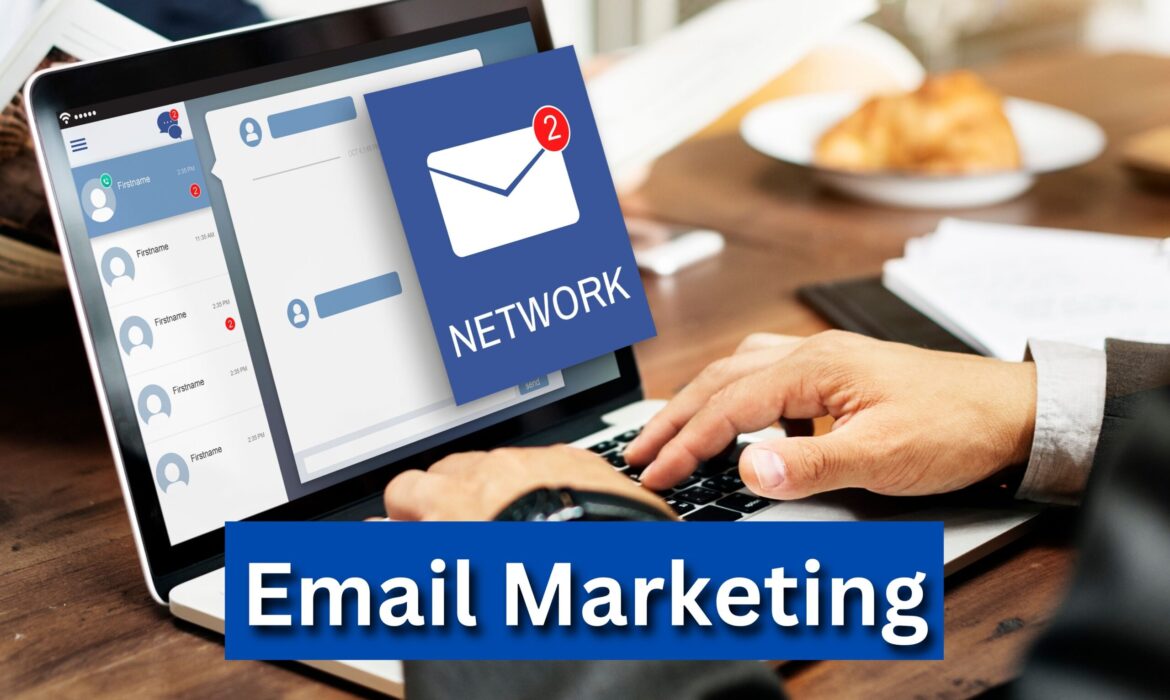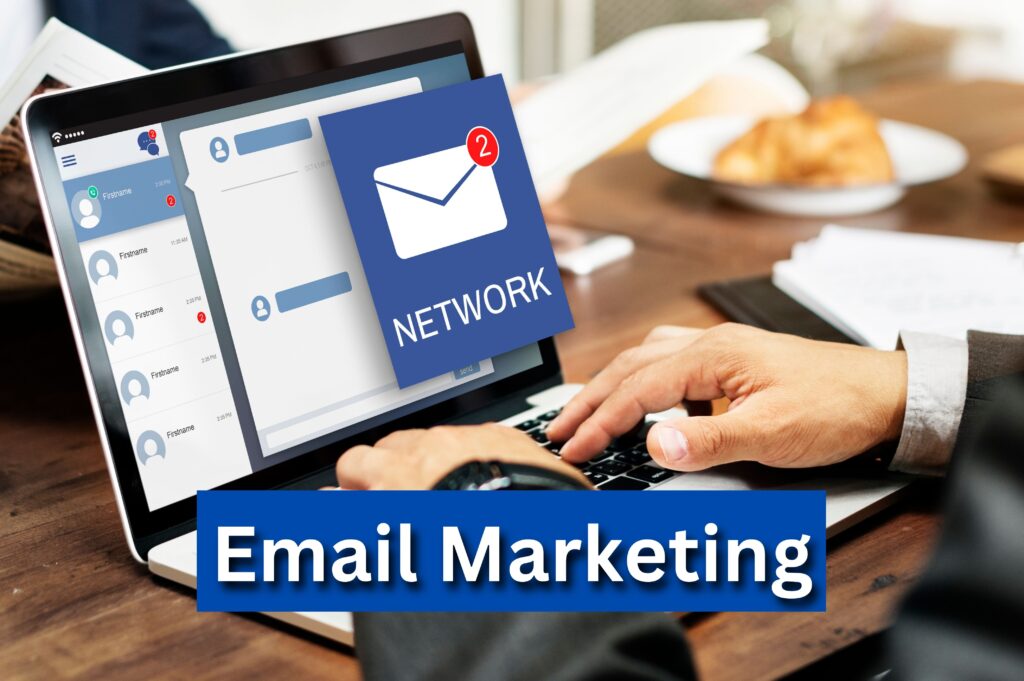

Email marketing is a crucial aspect of digital marketing that has become more important than ever before. It is one of the most effective ways to reach out to potential customers and retain existing ones. Besides this, there are a lot of other reasons why email marketing is important for businesses.
In this article, we will discuss why email marketing is important and how it can help businesses grow.
What is Email Marketing
Email marketing is the process of sending commercial messages to a group of people via email. The purpose of email marketing is to promote a business’s products or services, build brand awareness, and nurture customer relationships. Email marketing allows businesses to communicate directly with their target audience and provide them with relevant content.
What Are The Benefits Of Email Communication
It is mostly asked what are benefits of email communication are and why email marketing is important. Here are a few benefits mentioned below.
Cost-Effective
One of the biggest benefits of email marketing is that it is cost-effective. Unlike traditional marketing methods such as print ads, TV commercials, and billboards, email marketing requires minimal investment. Businesses can reach a large number of people with just a few clicks of a button, and the cost per message is significantly lower than other forms of marketing.
Wide Reach
Email marketing allows businesses to reach a wide audience. With over 4 billion email users worldwide, businesses can reach people from all corners of the world. Email marketing also allows businesses to target specific audiences based on their demographics, interests, and behavior.
Personalization
Email marketing allows businesses to personalize their messages for each recipient. By segmenting their email list based on demographics, interests, and behavior, businesses can send personalized messages that resonate with their audience. Personalized messages have been shown to increase engagement and conversions.
Trackable and Measurable
Another benefit of email marketing is that it is trackable and measurable. Businesses can track the success of their email campaigns by monitoring metrics such as open rates, click-through rates, and conversion rates. This allows businesses to make data-driven decisions and optimize their email campaigns for better results.


Types Of Emails
There are several types of emails that businesses can use for email marketing. Let’s take a look at some of the most common types of emails.
Newsletters
Newsletters are a type of email that businesses use to keep their subscribers informed about their latest products or services, industry news, and other relevant information. Newsletters are usually sent on a regular basis, such as weekly or monthly.
Promotional Emails
Promotional emails are a type of email that businesses use to promote their products or services. These emails usually include a special offer, discount, or promotion to entice the recipient to make a purchase.
Welcome Emails
Welcome emails are a type of email that businesses send to new subscribers to introduce themselves.
Transactional Emails
Transactional emails are a type of email that businesses send in response to a user action. For example, when a customer makes a purchase, they receive a confirmation email. Transactional emails are also used for password resets, account updates, and other similar actions.
Best Practices For Email Marketing
To get the most out of email marketing, businesses need to follow some best practices. Here are some of the best practices for email marketing.
Build a Quality Email List
Building a quality email list is critical for the success of email marketing. Businesses should focus on building a list of subscribers who are interested in their products or services. They can do this by offering a lead magnet, such as a free eBook or webinar, in exchange for the user’s email address.
Create Compelling Subject Lines
The subject line is the first thing that a recipient sees when they receive an email. A compelling subject line can increase open rates and improve the success of an email campaign. Businesses should focus on creating subject lines that are clear, concise, and attention-grabbing.
Use Personalization and Segmentation
Personalization and segmentation are key to the success of email marketing. By segmenting their email list and sending personalized messages, businesses can increase engagement and conversions. They can segment their list based on demographics, interests, behavior, and other factors.
Make Emails Mobile-Friendly
With more and more people using mobile devices to check their email, it’s essential that businesses make their emails mobile-friendly. This means creating emails that are easy to read and navigate on a small screen.
Include a Clear Call to Action
Every email should have a clear call to action (CTA) that encourages the recipient to take action. The CTA should be clear, concise, and easy to understand. Businesses should focus on creating CTAs that are relevant to the content of the email and the recipient’s interests.
Challenges And Solutions
While email marketing has many benefits, there are also some challenges that businesses may face. Here are some of the most common challenges and solutions for email marketing.
Email Deliverability
One of the biggest challenges of email marketing is email deliverability. Emails can get caught in spam filters or not reach the recipient’s inbox at all. To overcome this challenge, businesses should focus on building a quality email list, avoiding spam trigger words, and following best practices for email design and content.
Subscriber Engagement
Another challenge of email marketing is subscriber engagement. Even if an email reaches the recipient’s inbox, they may not open it or take action. To increase engagement, businesses should focus on creating compelling subject lines, personalizing their messages, and including clear CTAs.
Email Content and Design
Email content and design are critical to the success of an email campaign. Businesses should focus on creating content that is relevant and valuable to their audience. They should also ensure that their emails are visually appealing and easy to read.
Conclusion
In conclusion why email marketing is important, email marketing is an essential component of digital marketing that can help businesses grow. By leveraging the benefits of email marketing, businesses can reach a wide audience, personalize their messages, and track the success of their campaigns. While there are some challenges to email marketing, following best practices can help businesses overcome them and achieve success.
Email Marketing FAQs
Q. What is the best time to send an email?
A. The best time to send an email depends on the audience and the content of the email. Generally, the best time to send an email is on Tuesday or Thursday between 10 am and 11 am.
Q. How often should I send emails?
A. The frequency of email campaigns depends on the audience and the content of the emails. Generally, 2-4 emails per month is a good starting point, but businesses should test different frequencies to see what works best for their audience.
Q. Can I buy an email list?
A. No, buying an email list is recommended. Not only is it unethical, but it can also damage the reputation of the business and lead to low engagement rates and high unsubscribe rates.
Q. How can I measure the success of my email campaign?
A. The success of an email campaign can be measured through metrics such as open rates, click-through rates, conversion rates, and revenue generated. Businesses should set specific goals and track these metrics to determine the effectiveness of their campaigns.
Q. Can I use emojis in my subject lines?
A. Yes, emojis can be used in subject lines, but they should be used sparingly and strategically. Too many emojis can make the subject line look unprofessional and may be flagged as spam by email providers.
Partner with AnalyticsXpert for Expert Email Marketing Services
At AnalyticsXpert, we understand the importance of email marketing and how it can benefit businesses of all sizes. That’s why we offer a wide range of email marketing services, including email campaign creation, list segmentation, email automation, and more. Our team of experienced marketers will work closely with you to create custom email campaigns that resonate with your audience and drive engagement. Contact us today to learn more about how our email marketing services can help grow your business.


